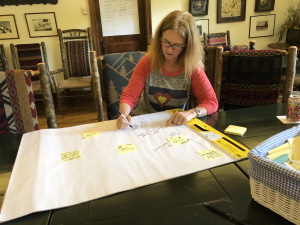One of the biggest struggles we see autism families face is relating to each other.
In last week’s post, How Kiddos with Differences Show Love, we wrote about how parents often struggle with rejection as they learn to navigate their child’s way of relaying love and affection.
In another recent post, we shared about the “autism and empathy” myth — the myth that people with autism simply don’t have the capacity for empathy.
Learning to relate to each other is one of the hardest and most rewarding things a family can do to become closer. The gap in a family between those with and those without autism can feel like an insurmountable chasm, but it really is worth traversing. And the journey is much less taxing when you have coaching, insights, and tools.
The key for many is in the words “perspective,” and “relating.”
Let’s talk perspective.
Think of looking through the lens of a camera. Not a phone, but an actual camera. You point, aim at a specific object, and then adjust the focus to bring your subject into view. For people without autism, the subjects tend to be things like people, compelling structures, eye-catching objects, and memorable moments. But for someone with autism, it’s not as clear what they are supposed to bring into focus. Is it the one contrasting leaf in the canopy of trees off in the distance? Or the bird perched right in front of the camera?
Many of us walk into a room and immediately latch onto the faces we recognize. That recognition prompts us to move toward and visit with those people. In turn, those people feel recognized, seen, and liked. But for somebody with autism, it might be the lamp on the table that first catches their eye. Maybe their gaze turns toward a branch outside playing at the window. Or maybe they’ve turned inward and are focusing on their favorite hobby.
If your child has autism, this behavior doesn’t mean they’re not interested in spending time with a dear distant relative who’s visiting for the first time in a while. And it doesn’t mean they’re not happy to see you at the end of the day when you come home from work. It simply means that they have a different perspective, which leads to their attention being grabbed by something we can’t relate to as important.
Now to relating.
Just as we wish our unique kiddos would have an easier time relating to others, the mismatch is two-sided. While we may be thinking, “Didn’t she see that her grandmother wanted a hug?” our kiddos may be thinking, “Why doesn’t anybody want to talk about my favorite tv show with me?” This also bleeds into our ideas of autism and empathy, or ‘perspective-taking.’
Experiencing empathy and demonstrating concern requires a person to be able to put themselves in the shoes of another. While that may come easily to many of us, it is quite difficult to put yourself in the shoes of another when you are hyper-focused on trying to figure out whether the heel of the shoe is wood or plastic.
It’s not that people with autism don’t care, it’s just that they’re not always focused in a way that allows them to access and illustrate that part of themselves.
To take this a bit further, people with autism are often motivated by different things. Whereas a bad test score might devastate one child, a child with autism might not be worried over it. Because of this, it would be difficult for the second child to empathize with the sadness of the first.
As we mentioned in our recent post, Autism Myth #6: People with Autism Don’t Have Empathy, ”People with autism often care very much; they just may not understand.” Or, to put it simply, relate.
The right coaching and therapy can help the members of your family understand and relate to each other in healthy and rewarding ways. It can help us interpret each other’s thoughts and motivations more clearly, thus improving our ability to empathize with one another.
At Clear Child Psychology, we understand the nuances between things like how someone might FEEL empathy vs UNDERSTAND empathy. We evaluate those nuances with our proprietary diagnostic tool, CADE, which helps us map out a more effective therapeutic approach for supporting individuals struggling with empathy.
We would love to help make your journey a little easier and the way forward much more clear. Get in touch with us to learn more.
Warmly,
The Clear Child Psychology team
We’re Here to Help
Schedule a free 20-min Discovery Session to start getting support for your family’s unique path and learn more about our coaching and consultation options.




